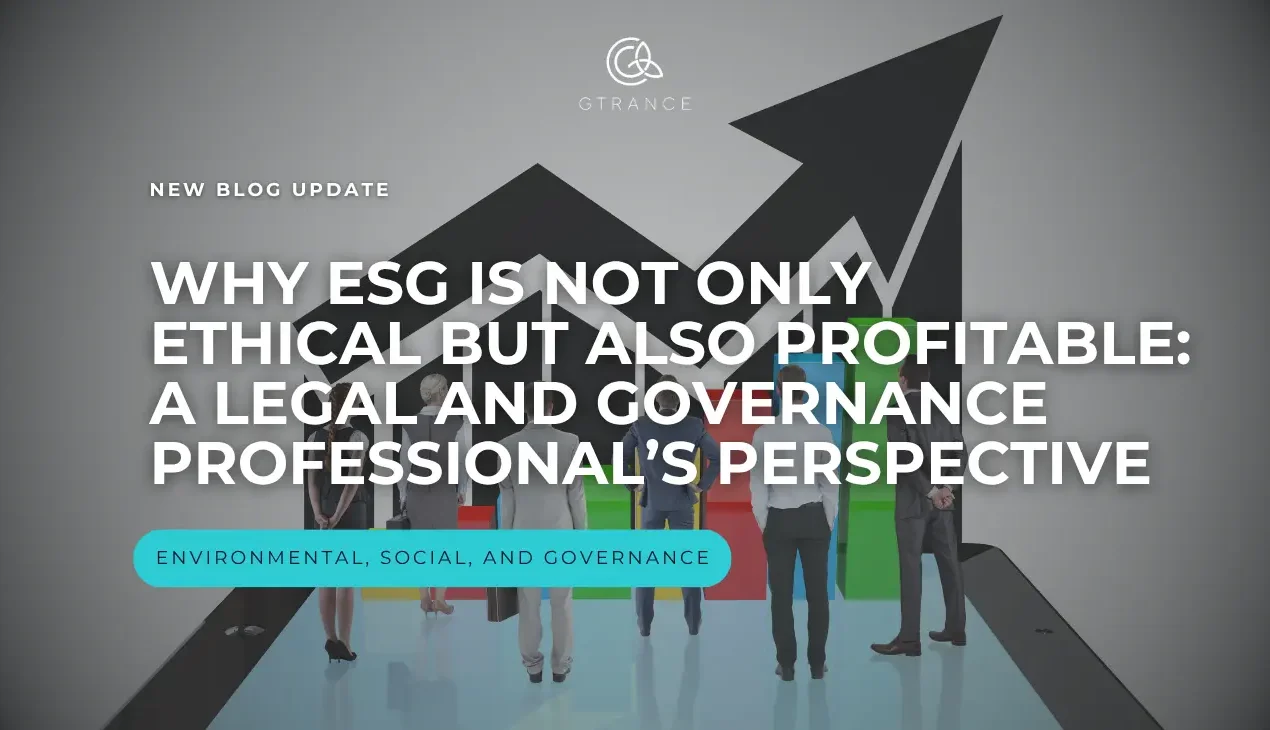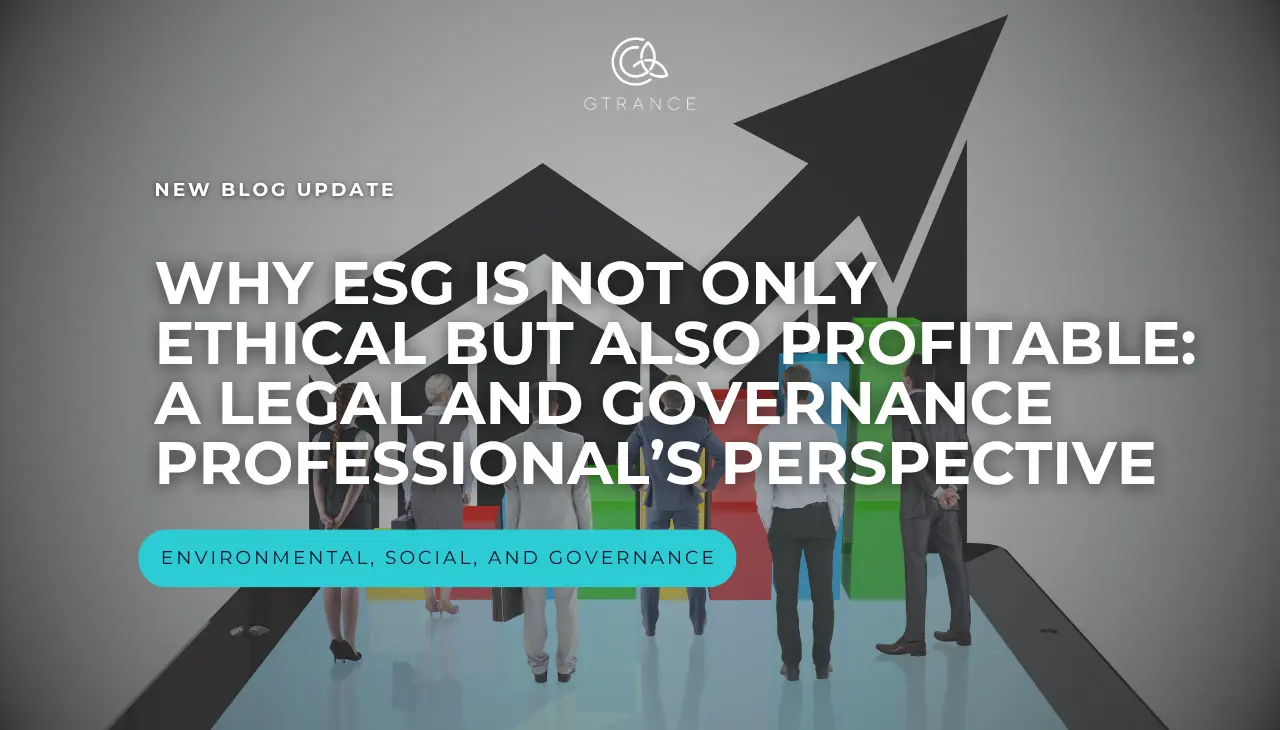
As a lawyer, a chartered governance professional, and a certified expert in Environmental, Social, and Governance (ESG) frameworks, I have witnessed firsthand how ESG has evolved from a compliance checkbox to a powerful driver of corporate value. Once considered peripheral to core business strategy, ESG today is central, not only to sustainability and reputation, but also to profitability.
In boardrooms, investment committees, and stakeholder engagements, ESG is no longer a “nice to have.” It is a strategic imperative. Companies that embed ESG into their DNA are demonstrating stronger financial performance, improved risk management, and enhanced stakeholder trust. Here’s why ESG, when understood and implemented correctly, is a catalyst for profitability.
-
ESG Attracts and Retains Top Talent
Workforce dynamics have shifted. As legal counsel and governance advisor to boards, I regularly observe that talented professionals, especially from Gen Z and millennials, are evaluating employers not just by salary, but by values. They want to work for organizations that stand for something.
Firms with strong ESG values foster inclusive, equitable workplaces and demonstrate genuine environmental responsibility. This alignment builds high engagement, improves retention, and reduces costs related to turnover. From a governance perspective, this translates to a stronger culture, lower HR-related risk, and higher productivity, each indeed a contributor to long-term profitability.
-
Stronger ESG = Stronger Access to Capital
Institutional investors, asset managers, and even lenders are increasingly incorporating ESG criteria into their decision-making frameworks. What is becoming clearer is that companies with robust ESG scores are de-risked from an investment standpoint and are more likely to secure capital on “favorable terms.”
Whether through green bonds, ESG-linked loans, or equity investment, ESG-oriented businesses enjoy a financial advantage. The capital markets are slowly but surely rewarding transparency, resilience, and sustainability, and penalizing opacity and inaction.
-
Operational Efficiencies and Cost Reduction
Good governance promotes prudent, strategic decision-making. When companies integrate ESG across operations, they identify opportunities for efficiency, energy reduction, sustainable procurement, supply chain optimization, and waste minimization.
I have seen companies significantly reduce operational costs simply by aligning with circular economic principles or transitioning to renewable energy sources. Moreover, strong governance practices reduce the likelihood of regulatory fines, litigation, or crisis mismanagement thus protecting both reputation and bottom line.
-
Enhanced Customer Loyalty and Competitive Differentiation
Today’s consumers are ethically informed and increasingly vocal. They want to support brands that align with their values and are quick to distance themselves from those that fall short.
Organizations that embed ESG into their branding and product strategy build authentic connections with customers. As an ESG strategist, I advise clients to report transparently and meaningfully, not for compliance alone, but to deepen customer trust. Loyal customers don’t just repeat purchases, they become brand advocates, increasing revenue and market share.
-
Risk Mitigation and Legal Safeguarding
From a legal perspective, ESG compliance is no longer optional. Regulations around governance, carbon emissions, human rights due diligence, supply chain transparency, and diversity disclosures are tightening globally.
Companies that are slow to respond risk exposure to penalties, shareholder litigation, and reputational fallout. On the other hand, proactive ESG governance allows organizations to anticipate, address, and mitigate these risks in advance, preserving both profitability and stakeholder trust.
-
Driving Innovation and Market Expansion
One of the often-overlooked benefits of ESG is the way it unlocks innovation. ESG-forward companies are reimagining products and services, from clean technologies to sustainable finance and ethical consumer goods.
Innovation thrives in inclusive, diverse environments. As a governance professional, I can attest that diverse boards and leadership teams, hallmarks of the “S” in ESG, are more effective at responding to change and seizing new opportunities. This not only supports profitability but ensures future readiness.
-
Reputation, Trust, and License to Operate
Reputation is a strategic asset. As a lawyer, I have advised companies against reputational harm. Companies that demonstrate genuine ESG commitment are more trusted by regulators, customers, partners, and communities. This trust translates into brand equity, crisis resilience, and long-term shareholder value. In a volatile global environment, trust is not just valuable, it is essential.
ESG Is Not Just Responsible – It is Smart Business
Profitability and purpose are no longer at odds. ESG offers a strategic framework that aligns financial success with societal and environmental impact. As a legal and governance expert, I encourage boards and executives to stop viewing ESG as a cost center and start recognizing it as a profit lever.
In today’s competitive, regulated, and value-driven landscape, companies that prioritize ESG are not only more ethical, but they are also more profitable, more resilient, and more investible.
By embedding ESG into strategy, governance, and culture, companies don’t just survive, they lead. The time to act is NOW!
Contact GTRANCE for more details on ESG Corporate Trainings.
©2025 Grace El Tayar
